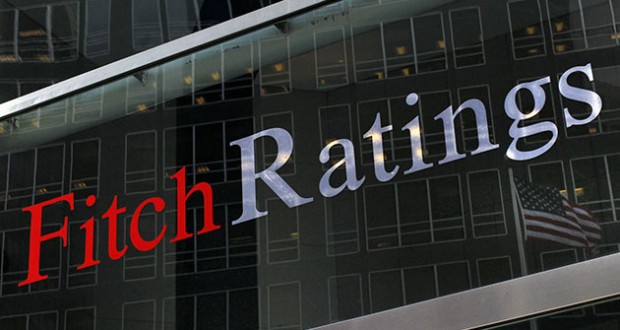NEW YORK, New York Feb 27, (CMC) – A major international credit rating agency has downgraded Suriname’s economic outlook from stable to negative.
Fitch Ratings has also downgraded the Dutch-speaking Caribbean Community (CARICOM) country’s long-term foreign and local currency Issuer Default Ratings (IDRs) “to “B+” from “BB-.”
The Country Ceiling has also been downgraded to “B+” from “BB-“, Fitch said.
It said, Suriname’s external finances have weakened since the last review, driven by a shock to commodity export prices.
“A widening current account deficit, -11.7percent of GDP (Gross Domestic Product) after net mining FDI (Foreign Direct Investment) inflows, and defense of the currency peg, drained international reserves in 2015, and a parallel exchange rate emerged,” Fitch said.
Additionally, it said, external liquidity has deteriorated as international reserves fell to 1.7 months of CXP (US$308.7million) in January.
The rating agency noted, that the Suriname government has requested International Monetary Fund (IMF) balance of payments support, “although agreement has not yet been reached and there are execution risks around any eventual program.
“Further reserve burn could undermine the capacity to meet sovereign external debt service – largely concessional, multilateral debt – or minimum import payments,” it said.
Fitch said, three-quarters of Suriname’s gross external financing needs were financed by US$295 million international reserves and US$233 million net external borrowing by the government and monetary authority in 2015.
Fitch’s baseline scenario assumes that import compression, through fiscal and exchange rate adjustment, narrows the current account deficit in 2016 and that a new gold mine opening in 2017 supports international reserve accumulation.
Imports related to mining investment and refinery construction services should also decline from 2015 levels, Fitch said.
Reflecting pressure on international reserves, the rating agency said, a parallel exchange rate has emerged despite the 21 per cent currency devaluation on November, 18, 2015.
Fitch said, the government deficit rose sharply in 2015 to 9 percent of GDP, driven by falling commodity revenues, election-related fiscal slippage, and recognition of larger-than-expected arrears to private suppliers.
The high 60 percent foreign-currency composition of government debt, exposes government debt dynamics to further currency depreciation, Fitch warned.
It added, the authorities expect fiscal adjustment in 2016-2017 to be supported by institutional reforms to liberalize the energy sector, increase profitability of loss-making state-owned companies, and improve public-financial management with a new medium-term budgetary framework.
But Fitch cautioned, that there are implementation and downside political risks to the pipeline of pledged reforms, noting that opposition parties abstained from the 2016 budget vote, and Cabinet statements in January cast doubt on continuation of the electricity reform.
The austerity plan cuts capital investment to2 per cent of GDP for 2016-2017 during an economic recession.
Fitch said, the structure of public finances remains weak – reflecting the government’s narrow revenue base, vulnerability to commodity price volatility, and rigidity of the large public-sector wage bill, which was 9.2 per cent of GDP in 2015.
Fitch said, it expects Suriname’s interest expense to rise from 7.9 per cent of revenues in 2015, if the government reduces its reliance upon central bank financing in favour of domestic capital market sources.
The rating agency also said, Suriname’s macroeconomic performance has also worsened, stating that the economy is projected to enter a second year of recession, contracting by 2-3 percent in 2016.
Real per capita income is projected to decline for the first time since 2000, while unemployment rises, Fitch said.
“Suriname’s credit ratings are underpinned by its higher per capita income and governance indicators than peers,” it said.
Fitch said, political stability, respect for long term mining contracts and absence of resource nationalism continue to attract foreign investment into the development of new gold and oil reserves.
But it concluded, that the business environment for small investors, quality of economic and public finance statistics, and institutional capacity “constrain Suriname’s ratings.”
 Pride News Canada's Leader In African Canadian & Caribbean News, Views & Lifestyle
Pride News Canada's Leader In African Canadian & Caribbean News, Views & Lifestyle





